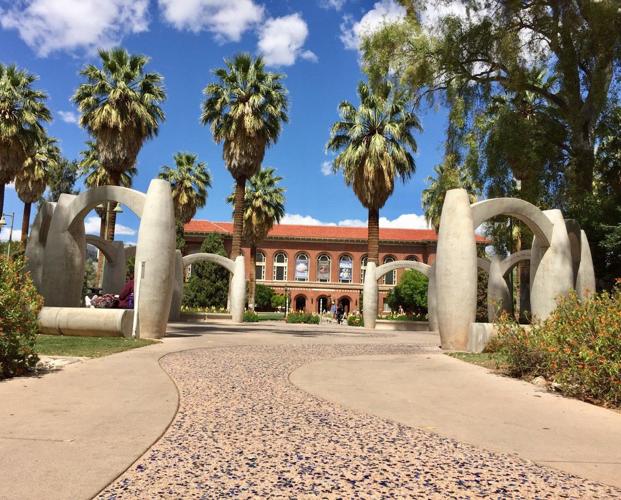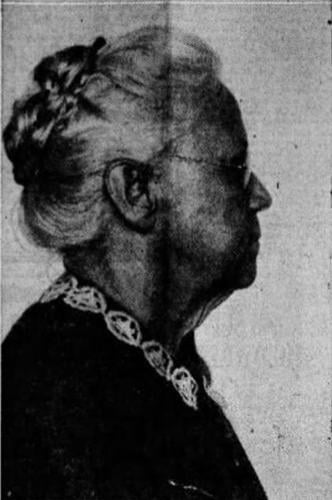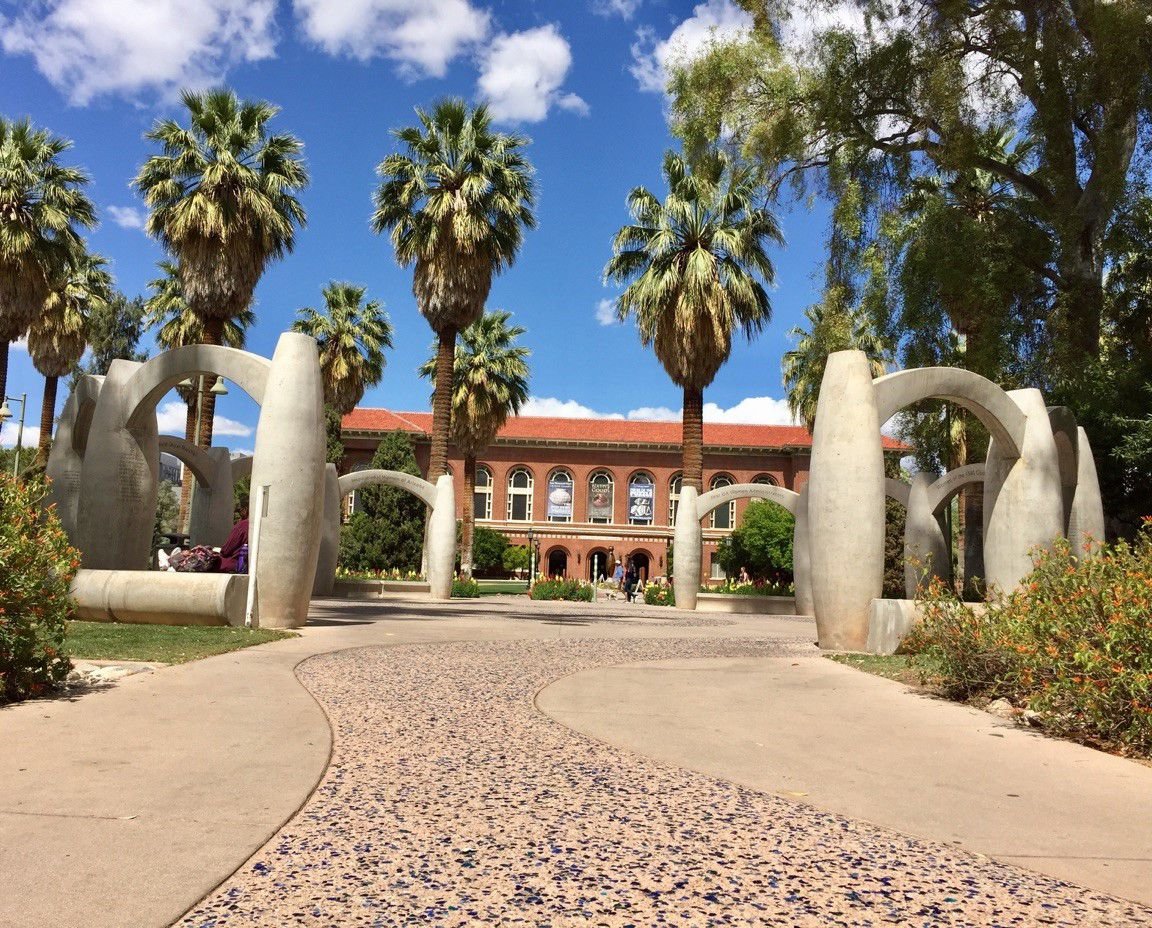March is the month when we celebrate the women who have gone before — those who stood up, spoke out and made history.
March is Women's History Month, and Tucson's past has no shortage of sheroes.
You may not have heard these women's stories in your history class (we're looking at YOU Father Kino.) But we are trying to remedy that this month with weekly reminders of Tucson's ladies of yore.
Since the end of March is fast approaching, we're wrapping up our series with two final women.
We found our last two women by cherry-picking names etched into stone (or benches) at the University of Arizona's Women's Plaza of Honor.
If you haven't been, you should. Especially now.
Just look at those snapdragons.
The plaza has been around since 2005, though the idea emerged about six years prior. With concrete arches and colorful flowers encircling the plaza and rows of tree-framed benches, the space invites you to sit a moment and soak in the legacies left by these ladies. The plaza has recognized more than 700 women from around the state since its dedication and doubles as a fundraiser for the university's gender and women's studies department.
Here are a couple of the ladies listed.
Louise Foucar Marshall
1864-1956

Louise Foucar Marshall awaited trial in a county jail cell.
This is the woman who has a whole foundation and UA building named after her. But we bet you don't know her backstory.
Louise Foucar Marshall shot her husband Thomas Marshall multiple times. Later, she was acquitted of the first-degree murder charge when doctors said the man died from an operation-induced infection, not the actual shooting. Age 70 at the time, she pleaded guilty and used temporary insanity as the reason. It worked.
Just know, we don't endorse Marshall's life choices.
Marshall was born in Boston and studied in Europe. Later, she earned two degrees from the University of Denver. She moved to Tucson in 1898 to soothe some health issues.
Marshall's story is actually pretty sad when you learn about her life before the shooting. Her once-happy marriage fell apart as rumors swirled about her husband having an affair and an illness she couldn't shake. Doctors' tests revealed poison in her system, and she blamed her husband and his lover.
Following the murder, the trial and the acquittal, Marshall continued her business endeavors and work with the Marshall Charitable Foundation.
Murderer or not, she made her mark here.
During her lifetime in Tucson, she:
• Became the first woman professor at the University of Arizona at the age of 36. She taught botany and a number of languages.
• Aspired to help other young women go to school at the UA.
• Became the head of the Department of Ancient and Modern Languages.
• Purchased and developed land around the UA to use as rental income to support students she wanted to help get through school.
• Developed the first retail stores near campus, a string of properties that later became University Boulevard.
• Created the Marshall Charitable Foundation (now the Marshall Foundation) to fund scholarships for students.
Sources: "A Remarkable Woman" by the Marshall Foundation; "Influential friends in east are seeking to assist Mrs. Marshall" in the Arizona Daily Star (1931); "Mrs. Marshall quickly freed by jury verdict" in the Arizona Daily Star (1931); "Bonnie Henry: Book tells enticing story of wealthy husband-killer" in the Arizona Daily Star (2009).
Polly Rosenbaum
1899-2003

100-year-old Polly Rosenbaum sits at the desk in the old House chambers at the Arizona State Capitol building where her political career began.
Edwynne "Polly" Cutler Rosenbaum lived to be 104 years old.
In that time, she served in the Arizona State Legislature for 46 years, becoming "Arizona's longest serving legislator."
Polly fought for women. In the 60s, she and other female lawmakers made the Arizona State Constitution gender neutral by removing the word "male" as a requirement for becoming an elected state official.
Then she helped establish the Arizona Women's Hall of Fame because women rock. She believed women won the West, not the men.
"The women are the ones who got the libraries and worked for the schools," she said.
Polly was most proud of her legislation that allowed counties to impose a tax for public libraries, according to an Arizona Daily Star editorial.
"She was a gem, and an example of how some legislators are dedicated to service and the public good," it reports.
During her lifetime in Arizona, she:
She actually didn't spend much time in Tucson, but she's still awesome.
• Known by her colleagues as "First Lady of the Arizona Legislature" for serving in the Arizona State Legislature for 46 years.
• Advocated for education, public libraries, recognizing women's contributions and historic preservation.
• Helped establish the Arizona Women's Hall of Fame.
• Has a building named after her in Phoenix called Polly Rosenbaum Archive and History Building at 1901 W. Madison St.
• Has a writing contest named after her.
Sources: Women's Plaza of Honor; Arizona Women's Hall of Fame; Arizona Women's Heritage Trail; and "Polly" in the Arizona Daily Star (2003).







